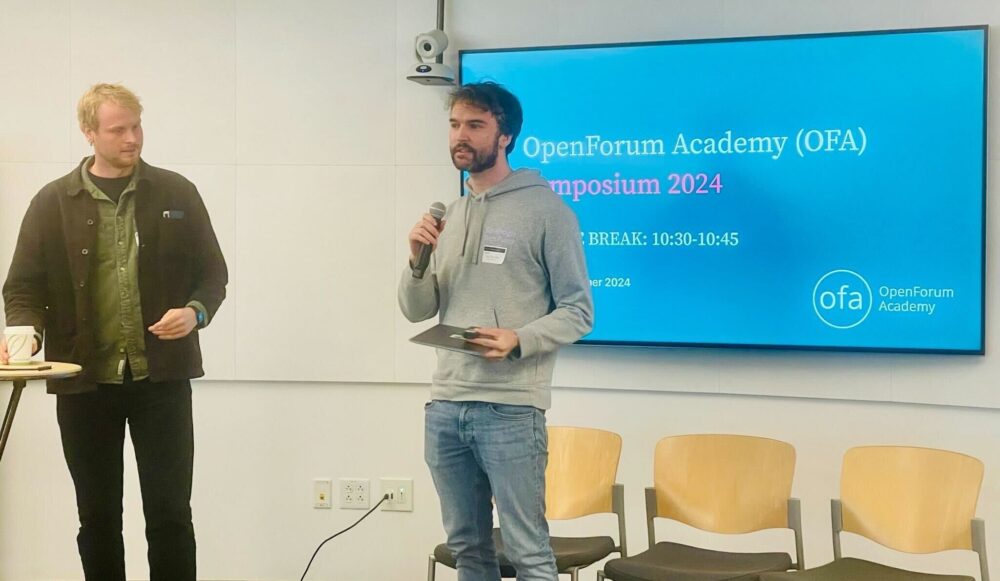
A toolkit for measuring the impact of public investments for open source software development: Practical learnings and reflections from the field
At the Sovereign Tech Agency, we recognize the growing importance of free and open source software (FOSS) in driving digital sovereignty, economic growth, and the security of software supply chains. As public investments become a key policy lever for FOSS maintenance and development, it is crucial to understand how these investments impact individual projects and the broader ecosystem. However, there remains a significant gap in measuring these outcomes.
To address this, the Sovereign Tech Agency, in collaboration with NGI Commons, CHAOSS, and the Linux Foundation, has co-authored a new paper: A Toolkit for Measuring the Impacts of Public Funding on Open Source Software Development. This toolkit offers not only a structured methodology but also discussion of key considerations and best practices for evaluating public funding’s effects on FOSS.
Drawing upon insights from our experience and the Next Generation Internet (NGI) initiative, as well as CHAOSS's work on FOSS community health metrics and models, we've outlined key considerations for assessing funding impacts, providing guidelines informed by both theory and practice.
Why this matters
Public funding plays an increasingly important role in sustaining open source projects, but we need to understand what that funding achieves. Does it make a meaningful difference in project security and sustainability? Does contribute to healthier communities? Does it foster long-term resilience and technological diversity?
With the release of our toolkit, we provide structured approaches to answering these questions and others. By exploring and evaluating methodologies for assessing funding outcomes, we can create a clearer picture of how resources are used and identify areas for improvement.
Key features of the toolkit
- Measuring Social, Economic, and Technological Impact: The toolkit outlines a taxonomy of potential funding impacts — from project sustainability to community dynamics and innovation.
- A Mixed-Methods Approach: Our toolkit combines quantitative methods — such as tracking contributions or code changes — with qualitative approaches that explore community health and the experiences of maintainers.
- Understanding Multiplier Effects: Many FOSS projects create ripple effects. The toolkit helps measure broader economic value generated by open source contributions.
Putting it into practice
In the coming months, we will begin piloting the toolkit through ongoing assessments and evaluations. We plan to present our findings at key conferences in the first quarter of 2025, follow our social media channels to stay updated on event details, presentation dates, and insights into our research progress. Additionally, we had the opportunity to present our paper at the Open Forum Academy Symposium at Harvard Business School on 13th and 14th of November 2024, where we engaged with researchers and practitioners to discuss the impact of public funding on open source software. These results will provide valuable insights into how public funding is impacting the open source ecosystem, and we look forward to engaging with FOSS communities on how we can refine and improve our approach.
We see this toolkit as the first step toward building a more robust, transparent understanding of how public investment supports critical digital infrastructures. By working with stakeholders across the ecosystem, we can ensure that public funds are directed where they can make the biggest difference, creating a more resilient and secure digital future for all.
A call for collaboration
If you’re involved in FOSS funding and policy, we encourage you to explore the toolkit and share your insights. This is a collaborative effort, and the more we learn from each other, the better equipped we’ll be to ensure that public investments in open source have the long-lasting impact we all want to see. We’d like to thank the co-authors of the paper Cailean Osborne, Dawn Foster, and Mirko Boehm for their collaboration on this exciting project.
To contribute or discuss further, feel free to reach out to our Policy and Research Manager Paul Sharratt: paul@sovereign.tech


